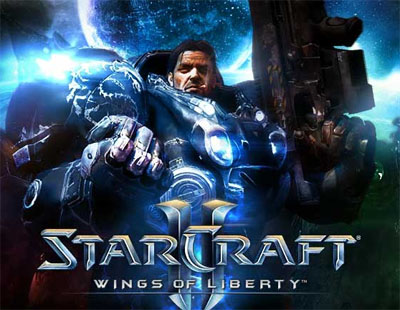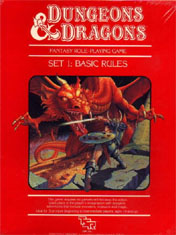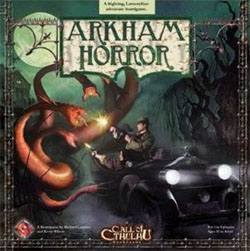Werewolves suck.
 I know what you’re thinking: “Justin, you’re obviously confused. Vampires suck. Werewolves bite.”
I know what you’re thinking: “Justin, you’re obviously confused. Vampires suck. Werewolves bite.”
But lycanthropes seriously suck in 3rd Edition.
I’m not one of those who generally subscribes to the theory that 3rd Edition stat blocks are horrendous. (Although I did revise them to improve the usability of the actual block itself.) Prepping stat blocks usually represents only about 5% of the time that I spend prepping for a game.
But lycanthropes? I hate the little bastards.
I can generally whip out even the most complex stat blocks with templates and class levels and fancy equipment in 15 minutes or so. But I just spent more than two hours prepping the stat block for a single wererat, and I’m still pretty sure that I’ve screwed up the math somewhere. Probably a minor screw-up (the sort of thing that wouldn’t bother me in a private campaign); but since this is for a professional project it’s driving me insane.
It’s not the multiple stat blocks that bug me. I don’t actually have any problems using a lycanthrope straight out of the book. And I’ll frequently whip up multiple stat blocks for the same NPC in order to facilitate temporary effects (different equipment, rage, buffs, etc.).
The problem is that the rules for creating lycanthropes require you to create all three stat blocks sort of simultaneously while pulling information from both the base creature and the animal form. So you end up juggling five different stat blocks, and if you discover that you need to make an adjustment on any one of them you have to backtrack the change through all the other stat blocks.
On the one hand, I’m kind of looking at the rules for werewolves in 2nd Edition and 4th Edition and wondering if there’s any reason we can’t adopt that simplicity into 3rd Edition: Just give me one stat block and let me apply a simple template (“add bite attack”) when the were-creature enters hybrid form.
On the other hand, having gotten the rant out of my system, I’m beginning to suspect that the real problem isn’t necessarily the rules, but rather the organization of the rules. It seems like what the system needs is a clear order of progression:
(1) Create base creature.
(2) Apply lycanthrope template to create humanoid form.
(3) Apply hybrid template to the humanoid form create hybrid form.
(4) Apply animal form template to the humanoid form to create animal form.
And while it’s nice to have the generic “use any animal” guidelines, it would probably be easier in practice to have separate templates for each of the established types of were-creatures. Here’s a stab at what the wererat templates would look like:
WERERAT TEMPLATE
Apply this template to the base creature to create the wererat’s humanoid form. This template can be added to any humanoid or giant.
Size and Type: Creature gains the “shapechanger” subtype.
Hit Dice and Hit Points: Add 1d8 hit die to the base creature.
Armor Class: +2 bonus to natural armor.
Special Qualities: alternate form, lycanthropic empathy, low-light vision, scent
Base Save Bonuses: Fort +2, Ref +2, Will +2
Abilities: Wis +2, may gain an ability score increase due to additional hit dice
Skills: +8 racial bonus on Climb and Swim checks. Gains (2 + Int modifier) skill points, treating Climb, Hide, Listen, Move Silently, Spot and Swim as class skills.
Feats: Alertness, Iron Will, Weapon Finesse
Challenge Rating: +2
WERERAT HYBRID TEMPLATE
Apply this template to the wererat’s humanoid form to create the stat block for its hybrid form.
Size and Type: Small or the size of the base creature, whichever is larger.
Armor Class: +1 bonus to natural armor (if better than the base creature’s natural armor bonus)
Attacks: Gains 2 claw attacks and 1 bite as a secondary attack (-5 penalty).
| Hybrid Size | ||
|---|---|---|
| Small | ||
| Medium | ||
| Large | ||
| Huge |
Special Attacks: curse of lycanthropy (Fort DC 15); cannot cast spells with verbal components
Special Qualities: DR 5/silver for afflicted lycanthropes; DR 10/silver for natural lycanthropes
Abilities: Dex +6, Con +2
WERERAT ANIMAL FORM TEMPLATE
Apply this template to the wererat’s humanoid form to create the stat block for its animal form.
Size and Type: Small
Speed: 40 ft., climb 20 ft.
Armor Class: +1 natural armor (if better than the base creature’s natural armor)
Attacks: Replace all attacks with a bite attack (1d4 plus disease).
Special Attacks: curse of lycanthropy (Fort DC 15); cannot cast spells with verbal, somatic, or material components
Special Qualities: DR 5/silver for afflicted lycanthropes; DR 10/silver for natural lycanthropes
Abilities: Dex +6, Con +2
Skills: Can choose to take 10 on Climb checks even if rushed or threatened. Can use their Dex modifier for Climb and Swim checks.
I think that should produce 100% rules-accurate stat blocks with less hassle.
(Pardon me for a moment while I wander away from my HTML editor…)
And the proof is in the pudding: Despite forgetting to apply the old age template to my base creature’s stats (so that I had to start over while I was half-way through the hybrid stat block) and taking extra time to design a custom magic item from scratch, it only took me half an hour to put together three wererat stat blocks for a 4th-level orc barbarian. And I’m far more confident of the result than I was of the mess I managed to generate after 2+ hours of struggle this morning.
(This, of course, is the point where one of you will point out some egregiously idiotic mistake I made in those templates and send me crying back to my drafting table.)
LYCANTHROPE WEEK
Wererats
Werewolves
Dire Werewolves















